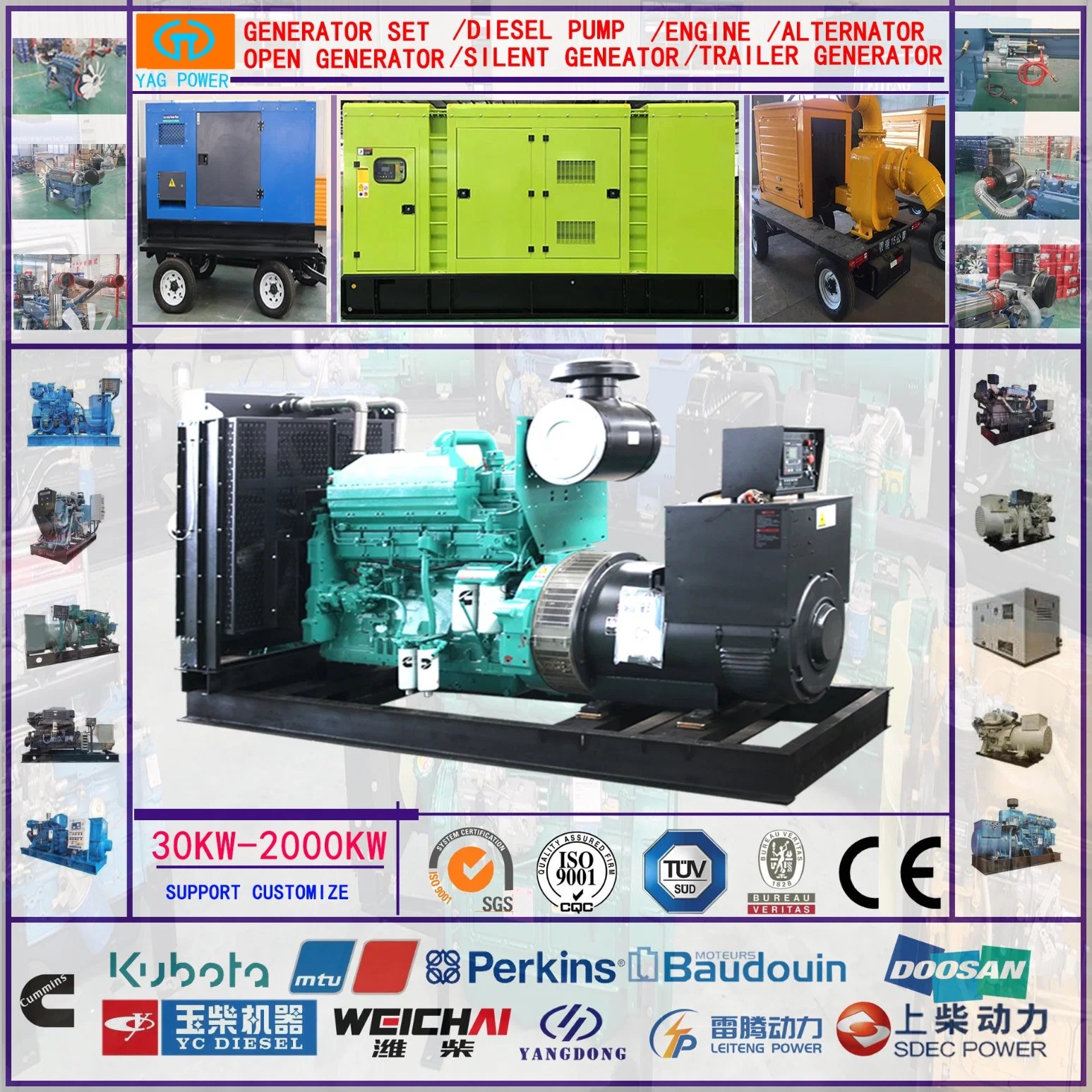Introduction:
The oil and gas industry is one of the most crucial sectors in the global economy, providing energy resources that power various aspects of modern life. However, the extraction, processing, and transportation of oil and gas require a reliable and uninterrupted power supply. In such environments, diesel generators have emerged as a preferred choice for providing backup and primary power due to their robustness, high performance, and ability to operate in harsh conditions. In 300kw diesel generator for remote power supply , we will explore the significance of diesel generators in the oil and gas industry, their applications, advantages, and emerging trends.
1. The Need for Power in the Oil and Gas Industry:
The oil and gas industry operates in remote locations, offshore platforms, and onshore drilling sites where grid power may not be available or reliable. The extraction and refining processes involve heavy machinery, pumps, compressors, and control systems, all of which require a constant and dependable power supply. Diesel generators fulfill this need by offering a self-contained power solution that ensures the continuous operation of critical equipment, even in the most challenging environments.
2. Applications of Diesel Generators in the Oil and Gas Industry:
2.1. Exploration and Drilling Operations:
During the exploration and drilling phases, diesel generators are used to power drilling rigs, mud pumps, and various auxiliary equipment. These generators provide the necessary energy to drive the drilling process, ensuring the efficient extraction of oil and gas resources.
2.2. Offshore Platforms:
Offshore oil and gas platforms are often located in remote areas far from the mainland power grid. Diesel generators play a vital role in powering the platforms' operations, including lighting, communication systems, HVAC, and essential machinery. They provide a reliable and independent power source, minimizing the risk of downtime and ensuring the safety and productivity of the platform workforce.
2.3. Refining and Processing Facilities:
Refineries and processing plants require a steady power supply to run their operations smoothly. Diesel generators are employed to provide primary power or act as backup systems during power outages or grid failures. These generators offer a reliable and resilient power source, allowing uninterrupted production and preventing potential losses due to downtime.
2.4. Pipeline Pumping Stations:
The transportation of oil and gas through pipelines requires pumping stations located at regular intervals. These stations rely on diesel generators to power the pumps, valves, and control systems. Diesel generators are favored for their ability to start and stop quickly, enabling efficient control of the pumping operations and ensuring the safe and continuous flow of oil and gas.
3. Advantages of Diesel Generators in the Oil and Gas Industry:
3.1. Robustness and Durability:
Diesel generators are renowned for their ruggedness and ability to operate in harsh environmental conditions. The oil and gas industry often exposes equipment to extreme temperatures, humidity, and dust, making diesel generators an ideal choice due to their ability to withstand these challenges. Their robust construction and reliable components ensure long-term performance and minimize maintenance requirements.
3.2. High Power Output:
Diesel generators offer high power output capabilities, making them suitable for powering heavy machinery and equipment used in the oil and gas industry. They can handle substantial loads and provide stable power, ensuring the smooth operation of critical processes.
3.3. Fuel Availability and Safety:
Diesel fuel is readily available worldwide, making it convenient for oil and gas companies to access fuel for their generators. Additionally, diesel fuel has a higher flash point compared to gasoline, enhancing safety in potentially hazardous environments, such as refineries or drilling sites.
3.4. Fuel Efficiency:
Modern diesel generators are designed with advanced technologies that enhance fuel efficiency, reducing operational costs for oil and gas companies. These generators provide better fuel consumption rates, allowing for longer runtimes without the need for frequent refueling.
3.5. Easy Maintenance and Serviceability:
Diesel generators are known for their simplicity and ease of maintenance. The oil and gas industry demands reliable equipment that can be quickly serviced or repaired, minimizing downtime. Diesel generators, with their robust design and easily accessible components, facilitate efficient maintenance and reduce the risk of operational interruptions.
4. Emerging Trends in Diesel Generators for the Oil and Gas Industry:
4.1. Hybrid Power Solutions:
To reduce environmental impact and enhance energy efficiency, the oil and gas industry is increasingly adopting hybrid power systems. These systems combine diesel generators with renewable energy sources, such as solar or wind power, to reduce fuel consumption and emissions. Hybrid solutions provide a more sustainable and cost-effective approach to power generation in remote or off-grid locations.
4.2. Remote Monitoring and Telematics:
Advancements in technology have enabled remote monitoring and telematics capabilities for diesel generators. Oil and gas companies can now monitor the performance, fuel consumption, and maintenance requirements of their generators in real-time. This proactive approach to maintenance allows for predictive servicing, reducing the risk of unexpected breakdowns and optimizing operational efficiency.
4.3. Emission Control and Compliance:
With increasing environmental regulations, the oil and gas industry is focusing on reducing emissions and ensuring compliance with stringent environmental standards. Diesel generators are being equipped with advanced emission control systems, such as exhaust aftertreatment technologies, to minimize their environmental impact. These systems reduce harmful emissions, such as nitrogen oxides (NOx) and particulate matter, making diesel generators cleaner and more sustainable.
Conclusion:
Diesel generators have become indispensable in the oil and gas industry, providing reliable and efficient power solutions for exploration, drilling, refining, and transportation operations. Their robustness, high power output, fuel availability, and easy maintenance make them the preferred choice in remote and challenging environments. With the emergence of hybrid power solutions, remote monitoring capabilities, and emission control technologies, diesel generators continue to evolve to meet the industry's changing needs. As the oil and gas industry progresses, diesel generators will remain a vital component in ensuring uninterrupted power supply and the smooth functioning of critical operations.

